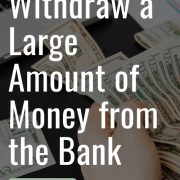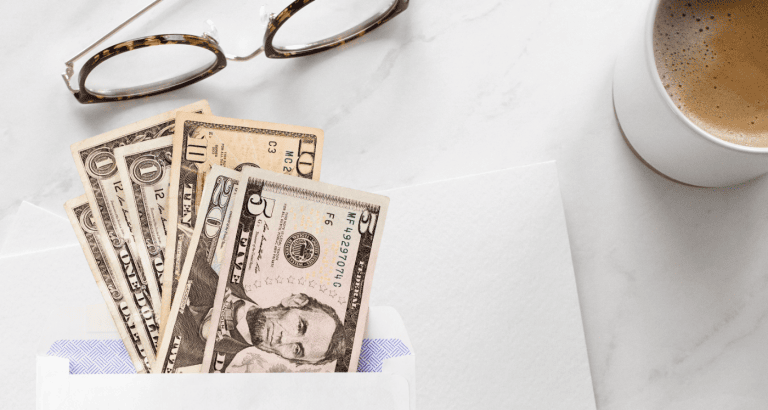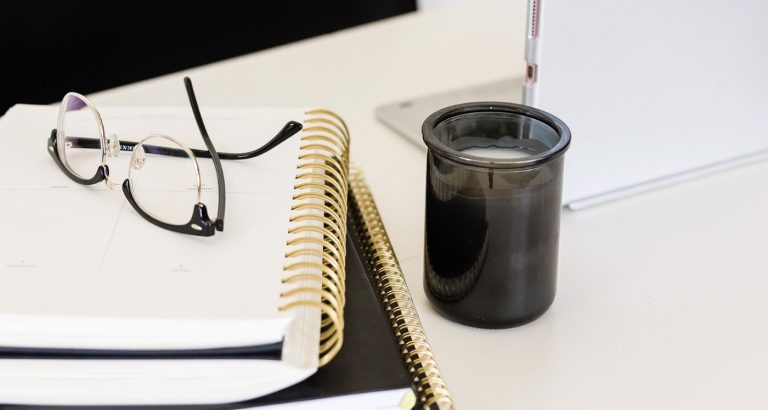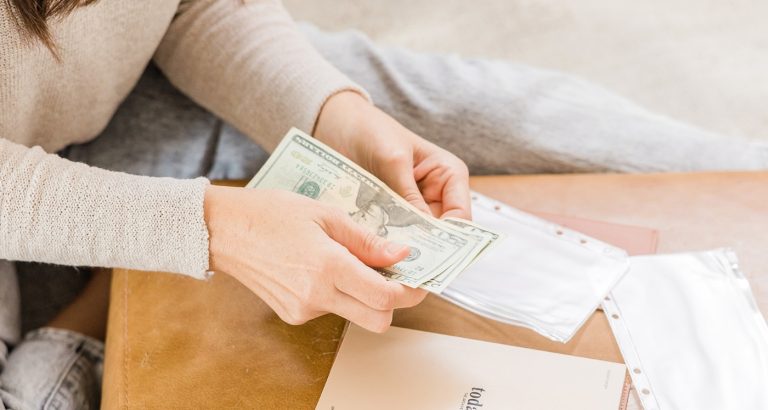How to Withdraw a Large Amount of Money From the Bank?
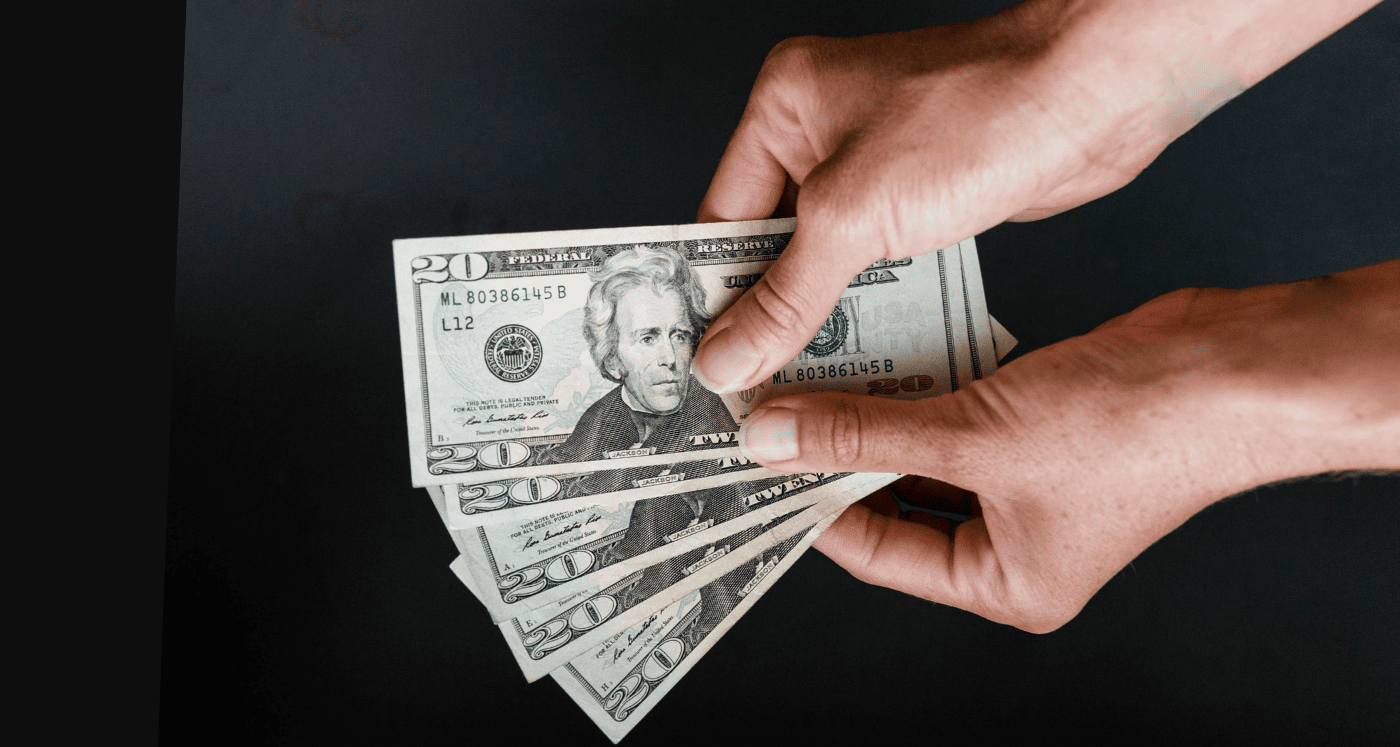
There are several good reasons to withdraw a large amount of money at once from your bank account. Perhaps you’re making a big purchase in cash, like a car.
You may need the money for a down payment on a home or something else equally important.
As an affiliate partner of various brands and sponsored content, HerPaperRoute may earn commission on qualifying purchases. Disclaimer
But you might be wondering about the particulars and how to withdraw a large amount of money from the bank or credit union.
Is it Possible to Withdraw a Large Amount of Cash From the Bank?
The answer is yes, it’s possible and you can. The entire point of having a bank account is to give your money a safe place to live while you add to it and save it for when you need it.
It would be pretty frustrating if you could not access your money when you wanted it! While there are some rules about the particulars, you can withdraw large amounts of cash from your bank.
What is the Highest Cash Amount a Bank Teller Can Give?
A bank teller can give you as much cash as you have in your account, although it could take a while if the amount is substantial.
Many banks have a $20,000 daily limit unless you’ve pre-arranged with the bank ahead of time. This limit is to help with the bank’s cash flow.
The bank could not have a ton of money at their branch, so it may not be an instant process to get your cash. Be prepared for it to take some time.
If you have a positive customer relationship or consistently hold a large account balance at the bank, they’ll be more accommodating to higher withdrawal limits.
How Much Cash Can You Withdraw from Your Bank at Once?
This is a great question. There aren’t regulations about how much you can withdraw, as long as you have that amount of money in your account.
Can I Withdraw $6000 from My Bank?
Yes, you can withdraw $6000 from your bank as long as you have $6000 in your bank account. This process will likely be simple and will not take very long at all.
Can I Withdraw $20,000 from My Bank?
Yes, you can withdraw $20,0000 if you have that amount in your account. But with an amount this large, it will be reported.
Your bank may have specific policies or ask questions about why you are withdrawing so much at once, but yes, you can withdraw it.
How Much Cash Can You Withdraw from Your Account Without it Getting Reported?
Amounts over $10,000 are reported to the IRS. This is for safety to prevent money laundering and tax evasion. It will not stop you from withdrawing your money, but the IRS will know of it.
Can I Withdraw All the Money in My Account?
Yes, you can withdraw everything in your account from your bank.
But if you want your account to stay open, some banks have minimum balances, such as $25 or more, that must remain in the account to keep it from closing and to pay fees.
And just because you can withdraw all the money in your bank account, it doesn’t mean you should. If you do need to take out a lot of money at once, be sure that you still have some savings.
What are Withdrawal Limits?
A withdrawal limit is the daily maximum your bank allows you to withdraw from your bank account. This limit is set in order to make sure the bank has enough cash on hand and also for security.
Banks keep a limited amount of cash on hand so if you want to cash withdraw an amount of money over the daily limits, you’ll need to contact the bank ahead of time to set it up. The bank may need to plan ahead to make sure they have the cash on hand for particularly large withdrawals.
ATM Withdrawals
ATMs also have withdrawal limits for the same reason. Only a certain amount of cash can fit into an ATM and the limits prevent one customer from draining the ATM for the day.
The ATM withdrawal limit may differ from your bank’s daily limit. So if your daily withdrawal limit is $2,000 but the ATM limit is $400, you would have to visit different bank-sponsored ATMs in order to reach your daily limit.
The cash withdrawal limit is generally for a 24-hour period before it resets. If you need a lot of cash and only have your ATM card to use, you’ll need to spread the withdrawals out over a few days.
Bank ATMs let you withdraw money from either checking accounts or savings accounts that you have at the bank while debit card withdrawals come from your checking account.
Debit Card Withdrawals
A debit card withdrawal limit is the maximum amount of money you’re allowed to spend in a 24-hour period before it’ll be declined. If you go over the debit card’s daily spending limit, your card would be declined even in you have enough money in the associated bank account.
Banks and credit unions each debit card transaction as a withdrawal from your account.
Your debit card can be the same as your ATM card depending on the bank. A debit card has more functionality since you can use it at stores as well as ATMs.
This is set to help prevent potential fraud. If your debit card number is stolen and used fraudulently, this debit limit will flag and decline abnormally large purchases.
If you know you have a large legitimate purchase, you can contact your bank’s customer service ahead of time to have them temporarily raise the limit or remove the flag on the purchase. The debit card limit is typically higher than the ATM limit.
Bank Teller and Cashier Withdrawal Limits
This is the 24-hour limit you have when you go into the bank branch and up to the window. This withdrawal limit is typically the highest, sometimes $20,000 or more.
There is less of a security concern with this method which is why the limits are a lot higher. You’re going into the bank and speaking to a bank cashier face to face. They can ask for ID or have other methods for verifying your identity that the other two withdrawal options lack.
What if you Need More Than the Withdrawal Limits?
What are you supposed to do if you have a large purchase that’s higher than your bank’s withdrawal limits and your bank won’t give you a temporary increase? The simplest solution is to send a bank transfer or write a check instead.
The standard bank transfer takes 1-3 days but many banks now have an instant transfer option for a small percentage fee that sends the money the same day.
Will the Teller Ask Me Why I am Withdrawing My Money?
Possibly. It depends on how much you withdraw. If it is a large amount, the bank teller may question what the money is for.
The Bank Secrecy Act requires banks to report any withdrawals of over $10,000 to help prevent money laundering and keep your money safe. So when they report it or ask about it, they’re just doing their job. It helps with bank safety and protects people.
Can I Withdraw Money from My Credit Card at an ATM?
Yes, many credit cards allow you to withdraw cash from ATMs but it comes at great expense. Not only will you have ATM fees, but the credit card cash advance fees can be as high as 5%. Plus you’ll have a 24% APR on the credit card if you don’t pay it off immediately.
Is it a Safety Concern to Carry a Lot of Cash With You?
It is a safety concern to carry a lot of cash around with you because you’ll be an easier target for thieves.
If you have a lot of cash, try to get it to its final destination as quickly and safely as possible. When running errands, do all of your other tasks first before heading to the bank to withdraw thousands in cash.
Precautions to Take When Carrying a Large Amount of Cash
Although it is your right to carry around as much cash as you’d like, you should take precautions. There are some things to avoid so you don’t make yourself a target for thieves.
Be Aware of Your Surroundings
When carrying a large amount of cash, be aware. Look at what is around you.
Avoid large crowds where it would be easy for someone to swipe your money. Use common sense by not being out alone, especially at night, and avoiding people that seem suspicious.
Avoid Conversations with Strangers Until You Have Your Cash Secured
When you’re carrying a lot of money, it pays to be on guard. Don’t stop to talk to people you don’t know while you are carrying a lot of cash.
They could be trying to distract you or possibly trying to figure out how much money you have with you.
Don’t Openly Display Cash
This is obvious. If you have a lot of money with you, do not show it off. Don’t pull a large amount of money out of your wallet or pocket for everyone to see. Instead, keep your cash secure in an inside pocket of a bag or maybe a money belt.
If you know you’ll be buying something; it’s also a good idea to separate a small amount of cash to spend from the larger amount. That way, when you pull out money, it doesn’t look like a lot.
Don’t Carry Large Amounts of Cash Alone
You are safer with a group. You alone are a much bigger target than you with many people or even one other person.
Be sure to stick with a friend or a small group of people if you’re carrying a lot of money.
Don’t Tell Friends/Acquaintances When You Are Going to be Withdrawing Large Sums of Money
Even if you trust the people you are with; it’s a bad idea for everyone to know how much cash you’re carrying.
They could mention it to someone else without meaning to. The less that others know about the amount of money you have with you, the better.
Don’t Carry Cash in a Cash Bag/Envelope that is Easily Identified
Instead of keeping cash in a conspicuous place, keep it somewhere more secure. An anti-theft backpack or a money belt can work well for this type of situation.
Basically, you’re trying not to make it easy for people to see that you have a lot of cash with you.
How to Withdraw a Large Amount of Money From Bank: Withdraw as Much as Needed, but Know that it Can be Reported
You are always within your rights to withdraw your own money from your bank account.
But know that there are laws about large amounts, and the bank has no choice but to report amounts over $10,000.
It’s for your safety and the safety of others, so it’s vital to allow bank tellers to do their job and remember to be patient.
Once you have the cash in hand, it’s up to you to keep it safe from thieves so make sure you have a plan before taking out a large amount of cash.
Read this next: How to make money online, for real.
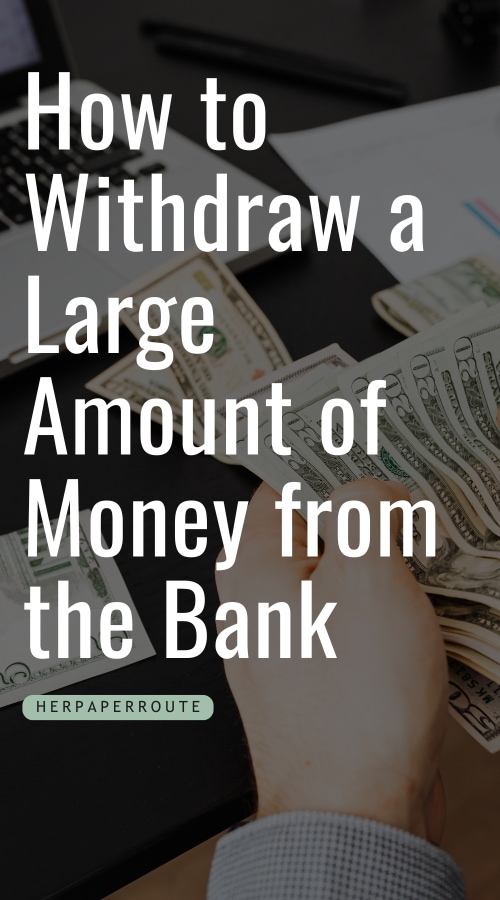
Follow along on Instagram!


